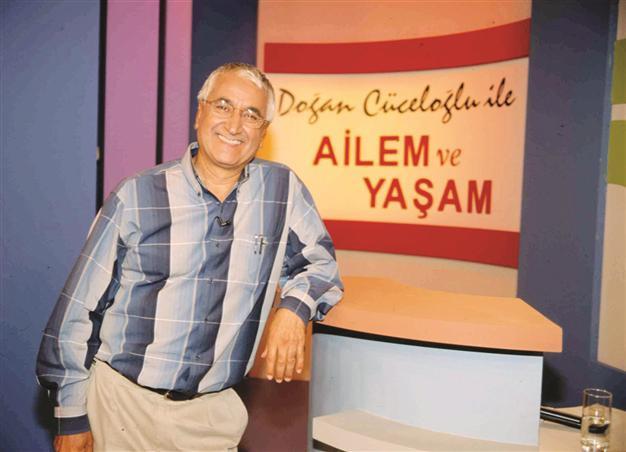Highly effective ways of self-help books in Turkey
Emrah Güler ANKARA - Hürriyet Daily News

The self-help and personal development genre finds its way into Turkey’s publishing world around the same time it has been gained momentum in the West. Emulating the economic practices, liberal policies and lifestyles in the West during the 1980s, Turkey has gone through drastic changes. A new middle class with Western sensibilities has been kick started.
A recent Turkish movie playing in theaters follows the adventures of a hapless guy trying desperately to better his luck to no avail. In Kamil Çetin’s “Oğlum Bak Git” (Dude, Move It), protagonist Orhan finds the ultimate solution to finding happiness and luck in consulting a self-help guru.
As a comedy hoping to appeal to a mainstream audience, it’s fair to say that the discourse of self-help, or personal development, has become an integral part of pop culture in Turkey. One look at the top 20 best-selling books on the bookseller D&R’s website shows as many as six books that offer advice, solutions and inspiration to readers who are presumably leading frustrating and unfulfilling lives.
Beki İkala Erikli’s “Meleklerle Yaşamak” (Angels Live) asks its reader to open their heart to the miracles of their guardian angels. İskender Pala’s “Aşka Dair” (On Love) talks about the different stages of love and in “Mesnevi Terapi” (Masnavi Therapy), Nevzat Tarhan offers ways to apply Rumi’s teachings and wisdom to everyday life.
In fact, the self-help and personal development genre takes the biggest slice of the publishing pie in Turkey, with more than 20 percent of all sales. There are around 2,000 books published within the genre in Turkey to date, with publishers like Dharma, Optimist and Elma specializing only in the self-help and personal development books. The Turkish translation of Robin Sharma’s international bestseller “The Monk Who Sold His Ferrari” reached one million readers a decade ago.
The self-help and personal development genre found its way into Turkey’s publishing world around the same time it gained momentum in the West. Emulating the economic practices, liberal policies and lifestyles in the West during the 1980s, Turkey went through drastic changes. A new middle class with Western sensibilities was kick started.
If Superman was Turkish…Success in the post-1980s period was mostly defined as achievement in a brutally competitive world. It was also the start of a period when many people’s hopes of living big would be crushed, leading to frustration and a sense of emptiness. The emerging self-help genre resonated with many in the West, establishing itself as a respectable place among bestselling books and soon emerging in Turkey.
The first personal development books published in Turkey were translations of the bestselling books on leadership and achievement in the professional world during the late 1980s and early 1990s. The Turkish translation of Stephen R. Covey’s “The 7 Habits of Highly Effective People” was published in 1989, the same year it was released in the U.S. Anthony Robbins’s “Unlimited Power: The New Science of Personal Achievement” was another popular title in Turkey during the early 1990s.
During the early 1990s, the market for personal development books was dominated by American works. Turkish readers were alienated by the focus on wisdom for a culture defined by an individualistic existence and rags-to-riches American Dream stories. Thus it was inevitable for Turkish names to emerge offering advice more suited to the people of Turkey.
Doğan Cüceloğlu, Üstün Dökmen, Mümin Sekman and Nil Gün are some of the authors who continue to inspire the frustrated urban middle classes of Turkey.
While the 1990s were defined by a focus on self-help books that were more leadership and success oriented, the economic crises of the 2000s changed the landscape of personal development books to focus on more spiritual issues, offering alternative routes on the path to happiness. This is reflected in some of the book titles, such as “Mutluluk Üretimi A.Ş” (Manufacturing Happiness, Inc.) or “Mutluluk Limanında Sonsuz Bir Mola” (An Eternal Break in the Happiness Harbor).
The genre became so solidly established in the last two decades that a backlash of parodies even made the bestseller lists. Ahmet Şerif İzgören’s “Hıdır Kişisel Gelişiyor” (Hıdır Personally Develops) follows a civil servant’s quest to find happiness through self-help books. With its mocking title, “Süpermen Türk Olsaydı Pelerinini Annesi Bağlardı” (If Superman was Turkish, His Mother Would Have Tied His Cape), İzgören asks his readers “not to pursue personal development, but follow societal development.”
